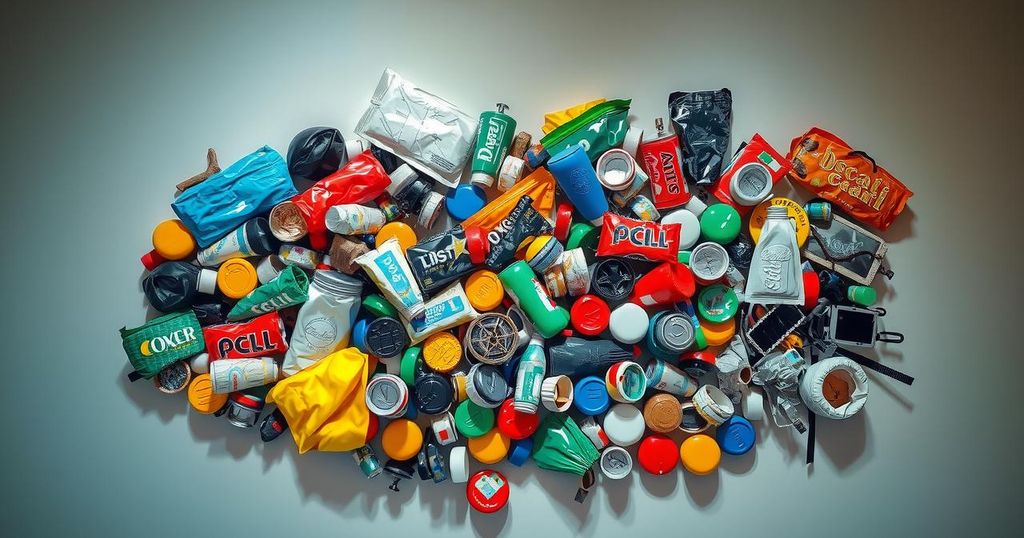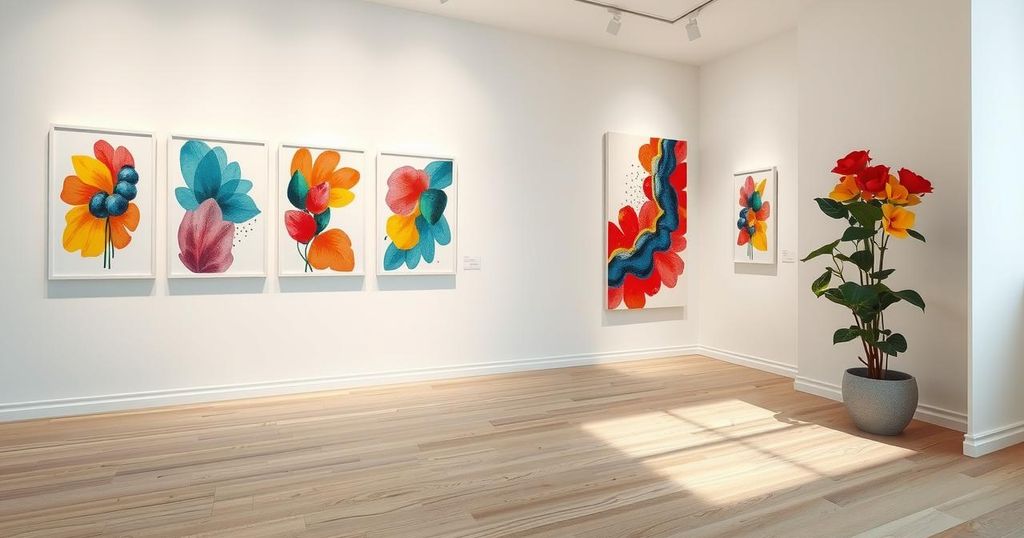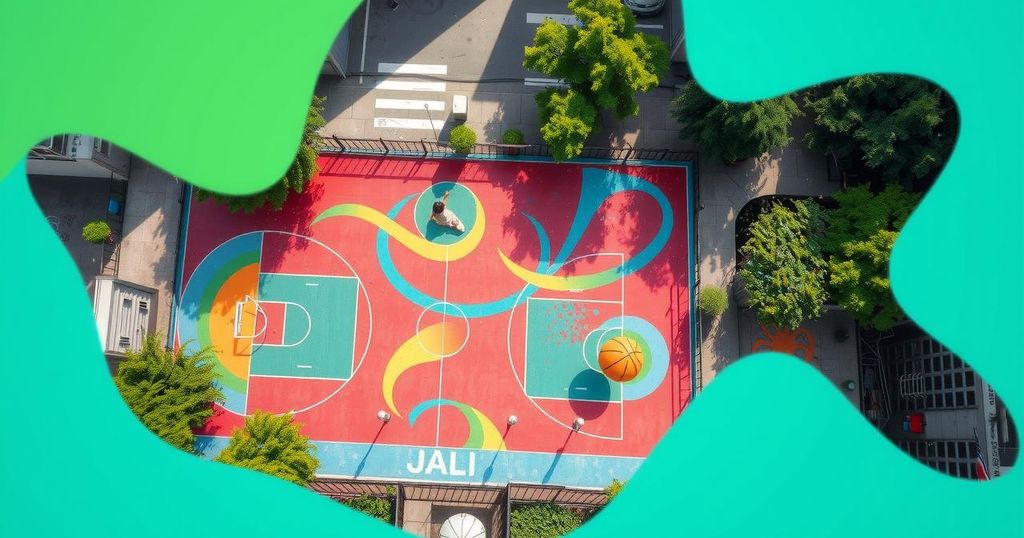Transforming Trash: Art from Repurposed Materials at San Francisco’s ICA
The ICA in San Francisco presents “The Poetics of Dimensions,” featuring artwork made from found materials, including Miguel Arzabe’s “Last Weaving.” Curated by Larry Ossei-Mensah and Alison Gass, the exhibit reimagines waste, provoking discussions on consumerism and social inequality through artistic expression. Opening October 25, it promises an extraordinary engagement with sustainability and art.
In a remarkable fusion of art and sustainability, California’s Miguel Arzabe draws inspiration from exhibit catalogues, creating stunning tapestries from repurposed materials. His masterpiece, “Last Weaving,” a complex Andean tapestry made from cut strips of books, encapsulates a timeless narrative. After struggling to find buyers for his art fashioned from discarded items like movie posters and pamphlets, Arzabe’s work has eventually found its place in the vibrant art market. Beginning this month, “Last Weaving” takes center stage at the Institute of Contemporary Art (ICA) in San Francisco, part of an innovative exhibit titled “The Poetics of Dimensions.” This show highlights artwork crafted entirely from found and discarded objects—from plastic bags to shoelaces—inviting viewers to reconsider consumerism and the transformation of waste into art. Curator Larry Ossei-Mensah emphasizes, “These are all materials we recognize, but the artists have alchemized them,” provoking conversations about the aftereffects of consumerism. Ossei-Mensah and ICA director Alison Gass meticulously curated this collection over several months. Initially set to debut in a former school gym, the exhibition found a new home in a historic former bank, now known as the Cube, amidst a backdrop of empty vaults waiting to be filled with creativity. For Gass, the goal is to aid viewers in navigating the complex world through the lens of artistic expression. The exhibit showcases pieces like Anthony Akinbola’s vibrant abstract work made from stitched durags, compelling visitors to question what is deemed desirable. Alongside this, Huge McCloud’s near life-sized depiction of a woman laboring beneath a heavy load reflects on the global plight of waste pickers. McCloud’s travels across various countries inspired him to repurpose plastic bags into striking art, ultimately shedding light on social inequalities. “I want to show what we ignore,” states McCloud, using his art to generate conversations about underrepresented issues. In parallel, Arzabe comments on the Bay Area’s tech boom, stating, “I wanted to show that complexity and value could be created through humble materials.” The exhibition “The Poetics of Dimensions” runs from October 25 to February 23, offering a transformative artistic experience, engaging viewers in dialogues about sustainability and societal reflections.
The piece explores the innovative and thought-provoking exhibition at the Institute of Contemporary Art (ICA) in San Francisco, showcasing artworks made solely from found and discarded materials. Artists like Miguel Arzabe and Huge McCloud transform trash into art, addressing themes of consumerism, social inequality, and the environmental crisis. Curators Larry Ossei-Mensah and Alison Gass aim to invite audiences to engage with these pressing issues through creative expression, serving as a platform for reflection and understanding in a rapidly changing world.
“The Poetics of Dimensions” not only celebrates the artistry in repurposed material, but it also serves as a critical commentary on consumerism and waste. The works of Arzabe, McCloud, and others challenge viewers to reconsider their relationship with discarded objects and the stories they tell. Through vibrant tapestries and striking images, this exhibition sheds light on important social issues while showcasing the transformative power of art.
Original Source: www.theguardian.com




Post Comment